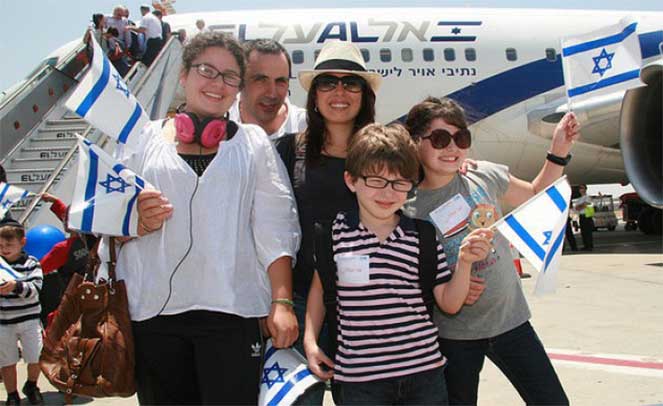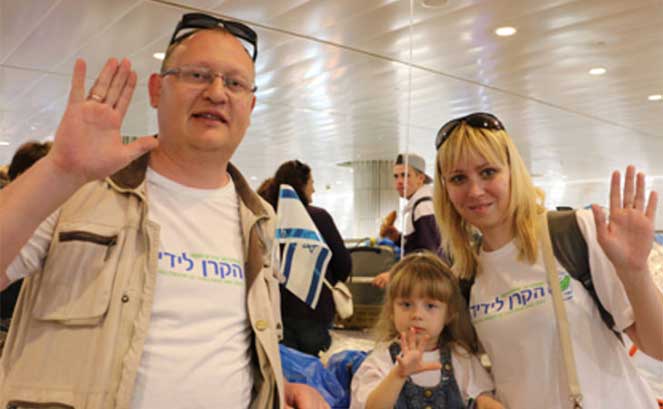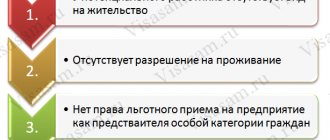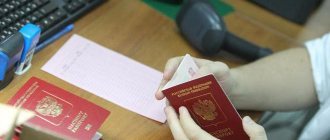Repatriation to Israel 2021: Assistance programs are drying up
Repatriation is the return to the home country of a person who was forced to move to another state and lost his original citizenship. As you know, Jews often became victims of various oppressions, so at the moment about 7.5 million Jews live outside Israel - 1.5 million more than in their native country. Fortunately, every person who was once separated from his people can return to his homeland. Therefore, let's figure out how repatriation to Israel occurs in 2021.
Who can become a repatriate
The Law on the Return of Jews to Israel, adopted back in 1950, implies that children and grandchildren of Jews can move to this state. Naturally, you will have to prove your Jewish nationality by providing certificates - for example, from the registry office. In this case, the religion of the potential migrant matters. Of course, no one can force you to convert to another faith, but even immediate relatives of Jews who do not profess Judaism run the risk of not being included in the repatriation program.
There is also another group of those who have the right to repatriate to Israel. These are people who converted to Judaism according to Halacha, that is, the set of laws recorded in the Torah. This rule causes criticism, as it limits the rights of representatives of other faiths, but in Israel, equal rights have been established for all citizens.
One way or another, there are no other ways to become a repatriate. Even if a full-fledged resident of the country takes a foreigner as his wife (or a resident marries a newcomer), the new family member will not be given citizenship. You will have to apply for a residence permit, apply for permanent residence...
Terminology
It is interesting to know what the resettlement of Jews to Israel from the Russian Federation in particular and from other countries in general is called: aliyah. Yes, this is where the name of the Ministry of Aliyah and Absorption came from.
According to linguistic tradition, people who move en masse to Israel from one state are identified as a certain community, that is, it is customary to talk about Russian, Ukrainian and Belarusian aliyah.
Literally, the term means “ascension, rise, elevation.” So this word has not only an actual, but also a metaphorical meaning, because Israel is the Promised Land.
Law of Return to Israel
The Law of Return, adopted in 1950, proclaims the right of every Jew to repatriate to the independent State of Israel. Essentially, this law is a legal basis that allows every Jew who arrives in the country to obtain Israeli citizenship. Exceptions to this law are individuals whose actions threaten public order and the security of the country, as well as criminals hiding from justice. Also, the new law prohibits the category of persons who have committed a crime abroad and are seeking asylum in the Holy Land.
From the beginning of the adoption of the Law on Repatriation to Israel until today, there have been numerous legal battles, the main problem of which is the criteria for establishing Jewishness. At the very beginning, the idea for the adoption of the law was Zionism, since the state positioned itself primarily as a home for Jews from all over the world. In addition, family members of Jews also had the right to obtain citizenship. But already in 1958, the first amendment was introduced, which read: “Anyone who has declared his Jewishness and professes only Judaism can become a Jew.” That is, there was no need to provide any written evidence of origin. And in 1970, a second amendment was introduced regarding who has the right to repatriate to Israel: “A Jew must be a person born of a Jewish mother who has converted to Judaism.”
Today, there is increasing talk in Israel to strengthen the requirements for citizenship both for those who are about to become immigrants and for those who are already in the process of obtaining it.
When Israel adopted a program for returning Jews to their homeland, it was a young, poor, warring state, where adherents of Zionism and Jews who miraculously survived the Holocaust went. Then no one thought that someone, for selfish purposes, would want to move to live in this state, which was threatened with complete disappearance.
Main repatriation programs to Israel
There are various programs for repatriates to Israel in 2021. If you are going to return to your historical homeland, it makes sense to take an interest in the activities of such well-known organizations as either. Representatives of these companies, together with the Israeli authorities, have developed many proposals for different categories of people, including:
- students;
- specialists wishing to improve their skills;
- singles planning to start a family abroad;
- pensioners.
Repatriates are especially often interested in the program for the return of Jews to Israel. Potential migrants, Jews who profess Judaism and have graduated from a university in another country, can take part in it. True, there is a rather strict age limit here: 33-42 years.
Nurse return programs are also popular. They are used by people under the age of 33 who have worked in their specialty for at least 1.5 years. A person who successfully completes such an internship becomes a full-fledged resident of the country.
Study in Israel for children and youth
Having joined one or another educational program, you can immediately begin to gnaw on the granite of science. The Ministry of Aliyah and Absorption does everything to ensure that studies in Israel for repatriates are as successful as possible. Children of immigrants can go to kindergarten and school immediately upon arrival in the new state. As for students, they have access to many preparatory departments at universities, including the most rated ones. If a newcomer does not speak Hebrew well, it makes sense to enroll in an ulpan - a school where every migrant from the CIS will be helped to learn the language from scratch (and for repatriates, 5 months of training are free).
Absorption programs: repatriation of families and singles
Jews or people professing Judaism who are also planning to move to Israel with their family should learn more about the At Home Together absorption program. As part of this proposal, visitors get to know local residents and have the right to communicate with them at any time, visit them, and ask any questions about the culture and infrastructure of the country. Program volunteers help resolve all bureaucratic issues.
It was said above that many issues related to resettlement are resolved much easier if a person considers himself a follower of Judaism. So if you are going to take your family with you, it is not necessary, but it is advisable that the whole family profess this religion.
By the way, another opportunity opens up for the faithful to move to Israel with their family - send an application to a kibbutz, that is, an agricultural commune. In particular, the “First Home in the Motherland” program deals with issues of resettlement.
Employment and training programs
The program for trained doctors has already been mentioned above. However, other Jewish specialists can come to Israel to continue their studies and open their own business. First of all, this applies to representatives of professions that are especially in demand in Israel:
- web designers;
- IT specialists;
- engineers;
- bank employees;
- lawyers.
But even repatriation to Israel for philologists implies many benefits. Specialists are exempt from taxes on pension savings and on the activities of companies registered abroad. Undergraduates, graduate students and future doctors of science can apply for scholarships and grants for scientific activities.

Return to Israel assistance programs
Jews are very responsible when it comes to the resettlement of representatives of their nation to their historical homeland. They create many programs that allow new citizens of Israel to adapt to living conditions, learn about religion, and the cultural values of the country. Representatives of the Jewish nation are helped by the organizations NAALE, MASA. Youth, children, middle-aged and elderly people can participate in such programs.
In 2021, the following programs are especially popular:
- adaptation for senior citizens of retirement age;
- repatriation program to Israel for youth and children's education;
- professional activity, employment;
- adaptation for single Jews.
The state provides all possible support in the development and implementation of programs, so new projects are constantly appearing. Thus, it is worth noting the “Perspective” program. It involves repatriates aged 33 to 42 with higher education. The duration of the program is 5 months, during which participants are taught to speak Hebrew fluently, are introduced to the way of life of Jews, and are taught certain professional activities. The “At Home Together” and “First Home in the Homeland” programs have been created for Jewish families.
Repatriation to Israel: main stages
So, we figured out what repatriation to Israel is, but implementing it is not as easy as it seems. It should be noted right away: there are a great many bureaucratic moments in this matter. If you are afraid that you will not be able to cope with some stage on your own, it is better to enlist the help of specialists from MASA and NAALE. Although you can do it on your own. Next, we will analyze each stage that a future citizen of Israel must go through.
Preparing documents for repatriation to Israel
Every Jew who wants to move to their historical homeland must prepare documents for repatriation to Israel. Don’t be confused by the fact that the list of required papers is quite impressive. At this stage, in no case should you be lazy, overlooking “optional” certificates, for example, about your state of health. Moreover, you should not submit false documents - this could result in an entry ban for up to 10 years.
So, the list of documents for repatriation to Israel, published on the official website of the country's embassy, is as follows:
- valid foreign passport;
- photo card 30x40 mm;
- birth certificate (required even for adults, as well as for immediate relatives of repatriates);
- if available - extracts from the registry office on marriage/divorce/death of a spouse; a letter from a Jewish organization supporting the repatriate; consent of the second parent to the child’s departure.
You also need to submit medical certificates and all papers confirming that the person in the country of origin received education, work experience, served in the army, etc. These are the same necessary documents for repatriation to Israel as a passport and visa.
Don't forget also about your driver's license, even if you don't intend to drive a vehicle abroad. Who knows what circumstances will arise in life? And taking exams at a driving school abroad means spending more effort, time and money.
A separate point that requires a responsible attitude is the search for housing. Even at the stage of preparing documents, you need to decide whether you will initially live with relatives, in a rented apartment, in a kibbutz (community) or in a dormitory of the Sokhnut organization. Any intention must be documented.
We are checking at the consulate
To get a chance for resettlement, the future repatriate must personally come to the consulate and answer several questions regarding his nationality, social status, etc. But before going to this institution, you need to fill out a special form. Citizens of the Russian Federation can learn more about this
Have you collected your documents and filled out the form? Find out when the consulate in your country is open and make an appointment by phone. The wait in line usually does not exceed 40-50 minutes. Upon successful completion of the interview, the future immigrant will receive a repatriate visa to Israel.
We turn to the Sokhnut agency for advice.
“” is a Jewish agency providing assistance in repatriation to Israel. Specialists from this organization are ready to provide potential migrants with maximum useful information. Moreover, this information may concern both the preparation of documents for the consulate and the nuances of everyday life in the historical homeland.
Don’t think that going to the Jewish agency for Israel “Sokhnut” is a mere formality. Most consuls who have conducted more than one interview with Jewish Jews strongly recommend contacting this organization and choosing an absorption program. For your information: such a well-known company as NAALE is partly financed by the Sokhnut program.
We receive benefits and allowances for repatriates
Did you go to the consulate and “Sokhnut”, choose an absorption program and prepare for the move? Now is the time to apply for assistance to new immigrants in Israel. It is better to find out how to do this from the organization that has prepared the auxiliary program for you personally, since the size of the future subsidy depends on many factors. One way or another, certain amounts will be paid to a family wishing to return to their historical homeland until all its members are integrated into society.
How much repatriates receive in Israel depends on:
- age;
- marital status;
- social status;
- having your own housing in Israel or a house;
- salary amount;
- health status.
On average, working adults without a family are paid 1,384 shekels ($346). Disabled people, pregnant women or women who have recently given birth, and pensioners are entitled to separate payments, which can be received within four years from the date of moving. Naturally, assistance in Israel for repatriates in need is provided only with certificates. Please note that people receiving benefits in their country of origin may be deprived of them in their historical homeland. Thus, the retirement age in Israel is 10-15 years higher than in most CIS countries.
Arriving at the airport: next steps
Have you bought plane tickets to Israel? Be sure to notify representatives of the Ministry of Aliyah and Absorption, and they will meet you at the airport. If for some reason your assistants did not come to your meeting, you can contact them by phone located at the entrance to the passport hall. After speaking with employees personally, you need to go through the following steps:
- passport control (do not confuse the queues - you are interested in the window for foreign citizens);
- a short interview at the office of the Ministry of Absorption - employees of the department located right at the airport will give you a starting package of documents and the first social payment;
- red corridor (if your baggage must be declared);
- green corridor (for baggage claim, which does not contain particularly valuable items).

Often, but not always, at the ministry office at the airport you can obtain documents for the use of benefits, notification of attachment to the health insurance fund, etc. Moreover, if you have not yet opened a bank account and have not chosen a medical center, it’s okay - you will have a few working days to do this. In the meantime, get into a taxi that will take you to your future place of residence for free.
Stages of repatriation upon arrival in Israel
Once you arrive in Israel, you don’t have to worry so much about formal procedures. Collecting documents and choosing a repatriation program is behind us, so it’s time to lead a normal, measured life. And yet, most visitors require (if they have not already done so):
- open a bank account;
- undergo examination by your attending physician;
- visit the Ministry of Aliyah and Absorption again;
- enroll children in kindergarten or school;
- go to university, get a job or open a business;
- practice your knowledge of Hebrew and English.
It was said above that Sokhnut employees can help you at any stage. Now we will have to build good relationships with the employees of the Ministry of Absorption. And remember that you can’t trust anyone 100%, especially in vital matters like finding housing. Sometimes problems arise, and visitors who have applied to stay in the Sokhnut dormitory find that there are no free places.
Such situations should be treated as manifestations of the human factor. Representatives of the Israeli authorities are not trying to deceive you, they just have the right to make mistakes, like all people. Therefore, just in case, have enough money both on the card and in cash.
Opening a bank account
In order to fully manage the money you already have and the money that the state will pay you, upon arrival you need to open a bank account as soon as possible. If you have documents confirming the rights of the repatriate, this will not cause difficulties - you just need to come to the branch of any chosen bank and literally go through a simple registration procedure in 20-30 minutes. The account number will then need to be reported to the Ministry of Aliyah and Absorption.
Most large banks in Israel have Russian-speaking employees, which is convenient for former citizens of the Russian Federation, Ukraine and Belarus. Most visitors choose Apolaim as their first bank.
Its advantage is that the repatriate can perform all operations for free for 12 months. But there are other convenient options, listed in our article about banks in Israel.
We visit the Ministry of Aliyah and Absorption
Coming in within the first 3-5 days after moving is necessary not only to provide your bank account. First of all, this is a chance to enlist the help of friendly people who are ready to answer any questions. Employees of the Ministry of Aliyah and Absorption in Israel perform approximately the same functions as Sokhnut representatives in the country of origin.
In addition, in the city you choose to settle in, you will be provided with:
- certificates confirming the repatriate’s right to enjoy benefits (if you did not receive them at the airport);
- recommendation for enrollment in ulpan;
- upon request - a list of necessary addresses and contacts (this is important for those who want to send their child to kindergarten or school, find a university or job closer to home, etc.)
Select a health insurance company and register
Medical insurance in Israel for repatriates is a benefit of paramount importance, because no one is insured against illnesses and accidents. So if you have opened a bank account and visited the ministry, it’s time to choose which health insurance fund to join.
Health insurance funds in Israel are large-scale organizations that locate their clinics, hospitals and pharmacies in almost every city.
Having chosen a cash desk, the repatriate will have to visit only those establishments that are assigned specifically to it. There are four of these organizations in the country, they are called:
- “Clalit”;
- "Maccabi"
- “Meuhedet”;
- "Leumit".
All four funds have their advantages and disadvantages, but all provide medical services of primary importance, such as, for example, childbirth in Israel for repatriates. The issue of attachment is handled by post offices.
In general, you can choose a health insurance company at the airport. But if for some reason you delayed (or wanted to make a different choice), you will need to go to the post office and use the bank account. Essentially, it means attaching a personal account to the health insurance fund.
If you are interested in repatriation to Israel with HIV infection, you don’t have to worry - not a single medical institution will refuse you an examination. Attachment to the health insurance fund is not complicated by anything other than providing a certificate, but you should already have it from the moment you submit the documents. To make your appointment with a doctor faster, you should take with you the results of your HIV tests and a set of medications prescribed to you in the country of origin.
Improving communication skills in Hebrew
Let us repeat: new immigrants who do not speak Hebrew well are entitled to five months of free training in the so-called ulpan. Such organizations have different training systems, since children, teenagers and people with higher education learn the language according to completely different programs. Groups are also formed based on the degree of proficiency in certain subtleties of Hebrew. People who speak a language fluently, but do not know writing, belong to one category, and those who have difficulties with pronunciation belong to another.

In total, about 6-7 preparatory groups are formed in the ulpan per year. But to make the training faster and more interesting, you should start it at home. You can find many companies online that offer online courses. By studying via Skype, you will be able to meet native speakers and students from different countries.
Poland in Russia
Benefit for repatriates after arrival in Poland
One-time financial benefit
The Government Commissioner for Repatriation provides the repatriate and members of his immediate family with a one-time financial allowance for:
- payment for the cost of travel or flight, as well as transportation of property to the Republic of Poland, in double the price of a railway ticket from the station closest to the place of residence of the repatriate to the place of settlement in Poland.
- establishment of a household and current maintenance, in the amount of double the average monthly gross salary
- payment of expenses associated with the start of education in Poland for a minor who is subject to school obligations, in the amount of the average monthly salary for each child.
A travel allowance may also be provided by the consul. This applies to those persons who have been issued a repatriation visa by the consul, but who do not have sufficient personal funds to pay the cost of travel to the Republic of Poland.
Financial assistance for repairs, adaptation or equipment of premises (apartments)
The headman (starosta) at the place of residence of the repatriate provides, at the request of the repatriate, financial assistance to pay for expenses associated with repairs, adaptation or equipment of the living space (apartment). The maximum benefit amount is 6,000 zlotys for the repatriate and each member of his immediate family. This amount is subject to annual renewal.
The repatriate may submit the above application within two years from the date of acquisition of citizenship of the Republic of Poland.
Financial assistance to meet housing needs
The Government Commissioner for Repatriation provides financial assistance to meet housing needs based on:
- a statement from a citizen of the Republic of Poland who is his ancestor, descendant or brother or sister, confirming his acceptance of the obligation to provide conditions for graying for at least 2 years, or
- decision of the Commissioner to provide a place in the adaptation center.
The benefit is issued in the form of co-financing:
- rent for residential premises or a residential building (not more than the price of the premises specified in the contract),
- fees for accommodation in a student dormitory (up to PLN 300 per month),
- the cost of purchasing a residential premises or house (up to 300 zlotys per month).
The total amount of the above financial benefit cannot exceed PLN 25,000 per repatriate, as well as for each member of his immediate family.
Financial assistance to meet housing needs can be provided for a period of no more than 10 years from the date of the repatriate’s arrival in Poland or his departure from the adaptation center.
Refund of the amount of housing benefit provided
The repatriate returns the amount of the benefit received, reduced by 10% of its amount, for each year that has passed since its payment, if the premises purchased using the financial benefit are sold before the expiration of 10 years.
The repatriate is not obliged to return the amount of the provided benefit if:
- within 180 days from the date of sale of real estate, he will submit to the Commissioner an extract from the notarial deed confirming the acquisition of the next residential premises or residential building;
- the cost of purchasing a residential premises or residential building is not lower than the amount to be returned.
Help from the commune in repairing, adapting or equipping living quarters
The commune can provide assistance to the repatriate, such as repairing, adapting or equipping the living space. To carry out this task, the commune receives a subsidy from the state budget in the amount of up to 6,000 zlotys per repatriate and for each member of his immediate family.
Assistance in the form of repairs, adaptation or equipment of living quarters is not provided to a repatriate for whom the commune has provided living quarters.
Help in mastering the Polish language, help in adapting to new living conditions
The repatriate can be provided with assistance in the form of ensuring his participation in free Polish language courses and adaptation to Polish society.
The courses are run by the Center for the Development of Polish Education Abroad (Ośrodek Rozwoju Polskiej Edukacji za Granicą). The application for participation can be downloaded from the website www.orpeg.pl
In addition, the adaptation centers provide repatriates with the opportunity to participate in adaptation and integration classes, classes that allow them to become familiar with Polish history, traditions and customs, as well as Polish language courses and vocational courses.
Access to healthcare during the first period of stay in Poland
Repatriates have the right to use health services for 90 days from the date of crossing the border of the Republic of Poland. After this time, they are subject to the same legal provisions regarding health care as all citizens of the Republic of Poland.
It must be remembered that the free use of the above services is not related in time to your stay in the adaptation center. In special cases, a repatriate can stay in the adaptation center even for up to 180 days, but this does not extend the period of free use of health services.
Professional activation of repatriates
The headman at the repatriate’s place of residence can provide him with measures for professional activation. This can happen by:
- reimbursement of part of the costs for professional development;
- reimbursement of part of the expenses incurred by the employer for the employment of a repatriate (for example, creation of a workplace, training, salary).
Reimbursement of expenses incurred for professional activation can occur no later than 5 years from the date of acquisition of citizenship of the Republic of Poland by the repatriate and provided that the repatriate was employed for a period of at least 24 months.
One or more forms of professional activation may be applied, but the total amount of costs associated with this cannot exceed twelve times the monthly salary for the quarter preceding the day the first contract is concluded.
Person supporting the repatriate
The repatriate may be assigned a person who will facilitate his integration. Such a person may be appointed as a mayor (wójt), mayor (burmistrz) or city president (prezydent miasta), upon application of the repatriate, justified by his special position. It may stem from:
- elderly;
- health conditions;
- lack of adaptation skills;
- lack of sufficient knowledge of the Polish language.
The support person's assistance includes, among other things:
- providing information on how to process cases related to healthcare, education, social assistance and employment;
- supporting the repatriate in completing the cases listed above, in particular in the form of drawing up official letters on his behalf;
- accompanying an elderly repatriate during visits to the doctor.
With the consent of the repatriate, the support person may contact government authorities and organizations to provide information necessary to provide assistance to the repatriate.
A support person is appointed for a period not exceeding 2 years.
Repatriation to Israel for minors
Children and teenagers moving to Israel with Jewish parents have the right to attend kindergarten and school. But if official representatives are not confident that their children will be able to quickly adapt to the new environment, you can submit an application on their behalf for participation in special NAALE programs. Teenagers aged 13 to 16 years have the opportunity to enroll in three- or four-year repatriation courses and prepare to receive a matriculation certificate.
Also, young migrants can go to schools at the embassies of the countries of origin. So, in Tel Aviv there is a Russian school, where children receive grades in quarters and celebrate national holidays, and then take the Unified State Exam and the Unified State Exam. Confirming a certificate obtained in one of the CIS countries is also easy. Therefore, you should not worry too much about difficulties.
List of documents
Persons who apply for permanent residence must collect a package of documents:
- Written evidence indicating Polish nationality, issued by local authorities and civil services of other countries;
- certificate of completion of compulsory military service in the Republic of Poland;
- documents on forced deportation from the country;
- evidence of persecution based on nationality;
- written confirmation of the rehabilitation of a deported Polish person or his relative;
All of the above documents must be issued by the following authorities:
- government bodies of the Republic of Poland or its predecessors;
- church;
- until December 31, 1991 – documents from the times of the USSR.
All documentation must be prepared in accordance with modern standards. If you lose papers issued in the USSR, it will be impossible to replace them.
So, to start the procedure you must present the following list of documents:
- Application for participation in the repatriation program.
- Provide documents proving Polish origin (or relationship with native Poles).
- Certificate of residence and availability of housing (the candidate must reside permanently in one of the above countries or regions).
- Certificate of absence of debts. It can be obtained from the tax office at your place of residence. It is also important that there are no outstanding loans or mortgages. If you have financial debts, traveling abroad will not be possible.
- Certificate of good conduct. The document can be obtained from a government agency.
- Copy of the passport.
- Photo of the candidate who applies for permanent residence in the Republic of Poland.
Repatriation to Israel of persons with a criminal record
Many potential migrants are interested in whether repatriation to Israel is possible with a criminal record. On the one hand, according to the Law of Return of the Jews, the right to citizenship in their historical homeland is a priority for every Jew. However, in practice, convicts are often not allowed into the country, even if their families have already moved to Israel.
In order for a convicted person to still obtain citizenship, he can act in two directions. The first is to try to rehabilitate yourself or at least present to the embassy all the materials about the essence of the case in which the person was found guilty. If the violation is considered not serious, the Jew will be allowed into his historical homeland.
The second is to wait until the statute of limitations on the case expires (for crimes of moderate severity in the Russian Federation, for example, this is 7-10 years). Having lingered in his homeland, a person who was once prosecuted can achieve repatriation to Israel simply by receiving a new “clean” certificate.
Exercise of the right to repatriation
Russian citizens who would like to repatriate to Israel must first collect documents and submit them to the consulate to ensure they are eligible to take advantage of the program.
When applying for repatriation to Israel, it is worth reviewing all family archives. From them you need to take birth certificates of relatives who are of Jewish origin. Other documents are also required: marriage, education, work records.
If you have relatives in modern Israel, you should definitely collect their papers and provide contact information. Applicants for participation in the program also provide their own identification documents. You also need to take photographs of each family member.
It is important to know that papers are submitted in person. In this case, the entire family must come to the consulate in its entirety, including children who are three years old.
The documents are checked by the Ministry of Internal Affairs, as stipulated in the law on return. If it finds no reason to deny the right of return, then repatriates to Israel are issued a visa.
Sometimes the verification takes longer. Sometimes the Ministry of Internal Affairs requires the provision of additional documents. That is why it is easier for immigrants from Russia to solve all problems at home by contacting the consulate than to spend the entire period of waiting for a decision to live on Israeli territory.
Repatriation to Israel for retirees
As mentioned above, children and grandchildren of Jews or people professing Judaism according to Halacha can move to their historical homeland. The age of such a visitor is not limited by law. But it is worth remembering that the retirement age in Israel is 62 years and 67 years (women and men, respectively). That is, a person recognized as a pensioner in one of the CIS countries may not be one in Israel.
It is especially important to take care of the issue of the right to social benefits for people applying for early retirement. So, in the Russian Federation these are military personnel (officers), people who worked in hazardous industries, ballerinas. One way or another, it is advisable to get a job in Israel, even if only for a short time, in order to at least qualify for old-age benefits.
State payments to repatriated pensioners in Israel
If a repatriate arrived in Israel at least 10 years before reaching retirement age and worked all this time, he will receive a full pension: contributions for length of service and old-age benefits. Those with minimal working experience (10 years or a little more) are entitled to a funded part of their pension, approximately equal to old-age benefits. Those who have lived in Israel for a long time and managed to work for about 30 years are paid about 6,000 shekels ($1,500) monthly.
Regardless of the size of the pension, an elderly person in Israel has the right to enjoy benefits.
Sometimes benefits are provided to spouses, even if only one of them has become a pensioner. Older people can save on:
- payment for television – 50%;
- real estate rental or property tax (if there is only one apartment) – 50%;
- public transport passes – 50%;
- visiting cultural events – 50%;
- medications from the so-called social basket - 75%.
Old age benefits for repatriates
If a person recognized as a pensioner in his home state did not work in Israel for 10 years, but moved to his historical homeland before turning 60, he will still receive money from the state. However, for this you need to meet several more requirements. This pension is paid to repatriates who:
- still got a job and at the same time have at least two children;
- receive government subsidies for unemployment or due to an injury received at work;
- live in a kibbutz (agricultural community).
The size of the pension benefit in Israel cannot be less than the subsistence level. At the moment, this minimum is 1,384 shekels ($384).
What to do upon arrival in Poland?
Upon arrival in Poland, you must contact local authorities and register. That is, to certify personal documents (birth certificate, marriage certificate, etc.) at the registry office at the place of residence, obtain a certificate of conferment of civil status in the local voivodeship, obtain a residence permit and a passport.
The repatriate has the right to cash benefits provided by the relevant law:
- transport - for moving and luggage transportation;
- lifting - for arrangement and current expenses;
- school - for children under 18 years of age.
In addition, there are state payments for the purchase or rental of housing and local payments from the commune - we wrote about them above.
After registering in a new place, you must wait for the decision of the Government Commissioner for Repatriation Affairs on the payment of due benefits. The money is transferred to a bank account within one and a half months after the relevant decision is made.
Having received a Polish passport, you can think about importing personal property. This can be done for free - without customs duties. But only after the repatriate is officially recognized as a citizen of the country.
New arrivals receive the right to free attendance at Polish language courses, as well as assistance in studying the legislation, culture and history of the country, and adaptation to their new place of residence. Retraining courses are also held for repatriates, which helps them find a job faster. Polish employers are loyal to newcomers , since when they employ them they receive a number of benefits from the state and payments from the local budget.
Truth and rumors about repatriation
Subscribe to Migrantu Mir: Yandex News.
Repeated repatriation to Israel
A person who, for one reason or another, needs to leave Israel after repatriation can move back to his historical homeland without any problems. However, alas, he risks losing some of his rights and benefits, especially medical care. It is also worth noting that bureaucratic procedures become significantly more complicated if a person has spent 5 years or more abroad.
If you left your historical homeland, but do not experience an acute shortage of money and intend to someday return to Israel, do not forget to pay contributions to the National Insurance Institute.
Otherwise, you will have to wait 6 months before regaining your rights to provide medical care, or cover all expenses one-time in the amount of 10,230 shekels ($2,840). Otherwise, repeated repatriation to Israel will result in problems that only private insurance companies can help resolve, which again means time, nerves and new significant expenses.

How to repatriate to Israel
- Collect documents confirming the right to repatriation.
You can do this yourself, or you can contact Sokhnut (free) or a private agency (paid), where they will explain to you which documents are suitable for repatriation. - Sign up for a consular check, successfully complete it and receive a permanent residence visa.
- After receiving a visa, contact the nearest Sokhnut branch to coordinate the departure date and receive flight compensation, as well as assistance with choosing a city of residence and absorption programs.
- Enter Israel within six months of receiving your visa.
The last point is especially important. Once you receive a permanent residence visa, you will need to enter Israel with your entire family within six months to obtain citizenship. If this is not done, you will need to go through inspection again, and there is a possibility that your re-visa will be refused.
Employment in Israel
Let's say you finally moved to Israel under the repatriation program. But where can I get a job with a certificate or diploma obtained in another country? And what should you do if you have already completed professional training in Israel? Are there any benefits for repatriates or, on the contrary, fines for people who failed to get a position on time?
Using your own savings in Israel
If you get a job in Israel and receive a salary in local currency, you naturally won’t have any problems using the money. But if you have significant sums (for example, from the sale of living space or vehicles at home), you will still need to bring them to Israel.
At the moment, there are three main ways to transfer money from the Russian Federation, Ukraine and CIS countries to shekels, and all of them involve some losses (sometimes up to 3.5%) due to differences in exchange rates:
- purchase international currency in cash (for example, in dollars) in the country of origin and bring it into Israel in hand luggage;
- open an account in Israel and, while in this country, ask a trusted person in your home country to transfer money from your “home” bank account;
- Even before moving, put all the money on the card and use it when paying for purchases - read more about this below.
How to save money by withdrawing money from a Russian card
As for the savings on the card, they can be cashed out or spent in an Israeli store without any problems. Of course, the card for this must be international (MasterCard, Visa). The only point is the advantageous rate at which rubles or dollars will be converted into shekels.
The question of how much money you will lose when exchanging currency is decided solely by the bank where the card was issued. So information about exchange rates should be sought on the official websites of “native” banks. By the way, former residents of the Russian Federation mainly use VTB and Sberbank of Russia cards. By the way, if your card is linked to a cashback service, you can return about 1-5% of your spending. Moreover, sometimes the bank reimburses expenses not with money, but with bonuses (for example, miles for air travel).
Possible results of consular check
Possible test results:
- obtaining a visa;
- refusal;
- request for additional documents;
- deferred decision on repatriation.
Obtaining a visa and repatriation rights
The consul usually makes a decision immediately after the check, and after a positive answer to the question about coming to Israel within six months.
Refusal
You may encounter a refusal in the following cases:
- lack of authentic documents testifying to Jewish roots;
- criminal history;
- conversion to another religion (applies only to halachic Jews);
- marriage after the child is born;
- marriage to a Jew shortly before submitting documents to the consulate;
- discrepancy between oral responses and written ones.
If the reason for refusal is the lack of certain documents, then you can contact the consulate again. In other cases, re-application is possible, but the support of a lawyer will be required.
Request additional documents
Additional documents are requested by the consul in cases where he has doubts about a particular fact.
Deferred decision on repatriation and change of status in Israel
This is possible if the consul is confused about something. The reason for this is the absence of some documents.
Resettlement program to Israel from CIS countries
Where should citizens from the CIS countries begin repatriation to Israel? All with the same preparation of documents and contacting specialized organizations. Many CIS citizens moved to Israel for political reasons after 1989. With Gorbachev coming to power, it became easier for people who were unable to find work in Russia, where there are still too many migrants, to leave the USSR. Therefore, it makes sense to ask the older generation for advice on relocation.
A religious organization such as “Word of Life” can help repatriates from the CIS. And in finding housing, guides to the regions where, at the end of the twentieth century, most houses were built specifically for visitors from the CIS, and not from Russia and Ukraine, will be useful. These are cities such as:
- Ashdod (home to about 200,000 migrants);
- Karmiel;
- Nazareth Illit;
- Yokneama;
- Be'er Sheva;
- Ofakim.
Resettlement program to Israel from the Russian Federation
In general, how repatriation to Israel from Russia and other CIS countries takes place is described in general terms in the previous sections. But it is worth noting that for those who were born or raised in the Russian Federation, it is somewhat easier to adapt to Israel than for representatives of other CIS countries. There are many Russian-speaking people in this country (on average, every fourth speaks this language), and this phenomenon is explained by the fact that since the beginning of the twentieth century there have been several waves of mass migration from Russia. And fellow countrymen, as you know, willingly help each other abroad.
Russian aliyah to Israel implies the possibility of contacting many specialized organizations. This is the Employment Center, where you can join the stock exchange, and the Office of Student Affairs, where applicants and first-year students can be provided with tutors from among senior students. By the way, a visitor from the Russian Federation (as well as from any CIS country) can then become such an assistant and receive a scholarship from the university administration.
Resettlement program to Israel from Ukraine
Repatriation to Israel from Ukraine in 2021 is no more difficult than repatriation of citizens from Russia. Yes, there may be additional difficulties with the language, but overall nothing complicated. The main thing is to be an honest and friendly person.
To speed up the moving process, you can contact GLOBAL. Thanks to its employees, potential migrants can quickly receive financial assistance for repatriates from Ukraine in Israel. In addition, as part of choosing a preparatory program, you can meet compatriots who are also planning to move.
According to statistics, in 2015, aliyah from Ukraine grew by 11% and became the largest after France.
More than 7,000 Ukrainian Jewish Jews returned to their historical homeland.
These figures are due to the fact that, due to the politically tense situation, many have become interested in repatriation to Israel from the ATO zone. It's no secret that the Donetsk and Lugansk regions are going through difficult times. Therefore, Jews who managed to prove their nationality moved to Israel under Sokhnut programs, and those whose paperwork was delayed received refugee status.
Resettlement program to Israel from Belarus
Repatriation to Israel from Belarus is easier than for residents of many other countries, since there is no need to obtain a tourist visa in order to get to know the country better before moving. Confirmation of this can be found. You can easily fly in shortly before moving, see the country, and start preparing documents later. However, this does not mean that you can neglect obtaining a repatriate visa.

Belarusians are encouraged to contact MASHAV for advice and support. These are not empty words - this call, as well as useful links and contacts, is contained
Above, we have already dealt with what documents repatriates to Israel need: residents of Belarus and Ukraine, Russia and most CIS countries have approximately the same list. We remind you once again: you need to plan your move seriously, using the help of notaries, lawyers and attorneys. You can, of course, not resort to the Sokhnut programs, enter Israel on a tourist visa and do the paperwork in your historical homeland yourself, but this is a very risky path, and we do not recommend doing so.
Where should repatriates live: the best cities
Those who have not yet decided on their future place of residence are usually interested in the question of where repatriates are settled in Israel. Potential migrants do not always understand that the country does not have separate settlements just for visitors. Each person can choose where to live independently and absolutely freely.
Most often, repatriates settle in places where they were given the opportunity to study or work according to Sokhnut programs. Another part remains in the homes of their relatives. Of course, this does not suit everyone, so people think about how to choose a city in Israel for permanent residence.
If you are free-floating, find out which cities have the best chance of finding a job or enrolling your child in a kindergarten or school. Don’t forget about those you will be moving with: your relatives may need specialized medical or sports facilities.
One way or another, by all indicators, the best cities in Israel for repatriation from any country of origin:
- Jerusalem;
- Be'er Sheva;
- Tel Aviv;
- Haifa;
- Jaffa;
- Tiberias;
- Eilat.
How do Russians live in Israel?
So, we figured out how to return to Israel as a Jew who was born and raised or simply spent a lot of time abroad. But is it worth it for Russians and citizens of other post-Soviet states to move to this state at all? How do local residents feel about migrants in general and visitors from Russia and the CIS in particular?
In general, the attitude towards visitors in the country is quite friendly - after all, over 1,000,000 Russian speakers live here. True, it is better to communicate with the secular population - Orthodox Jews often do not favor foreigners. And you should not provoke representatives of law enforcement agencies - the attitude towards the law in Israel is much stricter than, for example, in the Russian Federation.









